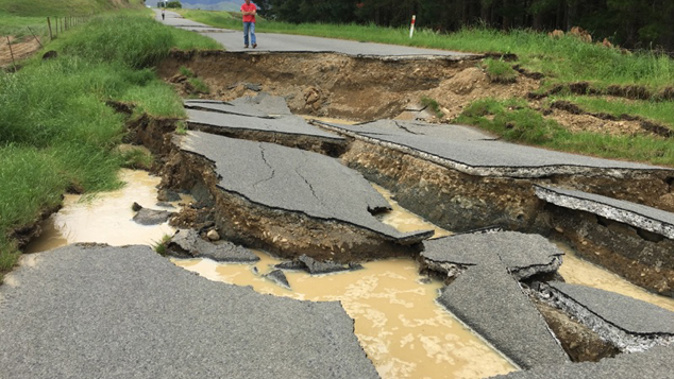
Geonet says it needs a service that's monitored 24/7.
Dr Ken Gledhill, who works for GNS Science said better technology and a centre that's monitored around the clock would help them not just analyse the data coming in when there's an earthquake, but react swiftly and potentially with greater accuracy when there's a major geological event.
That makes sense, doesn't it? The system should be monitored 24/7. I'm surprised it's not already.
Acting Civil Defence Minister Gerry Brownlee is a bit prickly about this. He said that he wasn't sure how that would make any difference in the wake of an event like Kaikoura.
He's a bit hot under the collar because he said GNS Science hasn't made a formal approach to the Government about this.
But what Dr Gledhill wants is a 24/7 monitored service because at the moment, if a big quake hits, people have to be woken up and you've got to get them out of bed and they quickly have to look at quite complex data and make a major call very quickly, which I think is quite alarming given we live in a country that's had a number of major seismic events over the last half a decade.
It seems quite absurd that you have to wake someone up, get them to access the data they use to monitor seismic activities, and then make a call about it's likely impact, and whether or not it may trigger a tsunami.
A full-time monitoring system would need about eight more staff, some changes to the technology being used at the moment, and Dr Gledhill suggests it would take three years to put in place.
I think you have to listen to the scientists, don't you? If they say they need a 24/7 monitored system, then that's what they need, surely?
The Minister is frustrated that this has all come to light after Dr Gledhill wrote a blog -- but that frustration should be put to one side. GNS Science hasn't made a formal approach to the Government for more funding. That approach is coming it seems.
Nor has Dr Gledhill been critical of the Government. He simply says we need to improve the system, we need to be able to monitor the risks posed by a big quake almost as it happens, not after we've woken someone up and they've stumbled around in the wee hours trying to look at the data that's coming in.
But on this issue, instead of getting prickly and defensive, the Government should head the advice of scientists.
That said, even with the best monitoring advice in the world, had a tsunami been triggered, the warnings may not have reached coastal communities in time.
The best advice, Dr Gledhill said, if you live on the coast and there's a strong earthquake, then head for higher ground.
But in a country and rocks and rolls as much as New Zealand does, a 24/7 monitoring system and improved technology doesn't seem like an enormous ask, does it?
Take your Radio, Podcasts and Music with you









